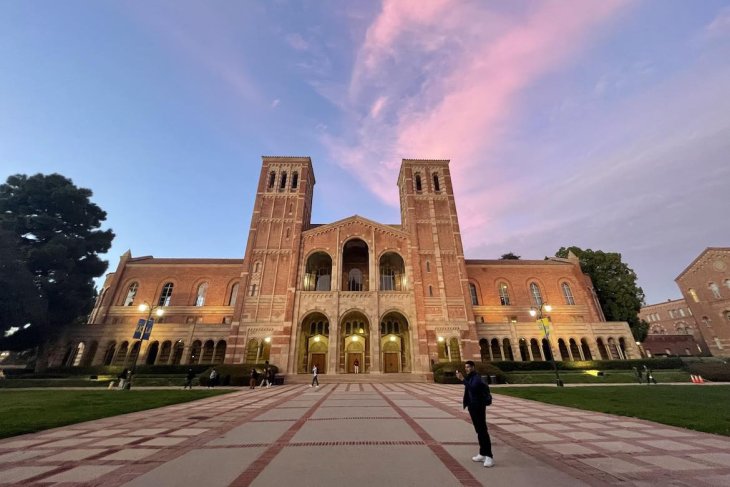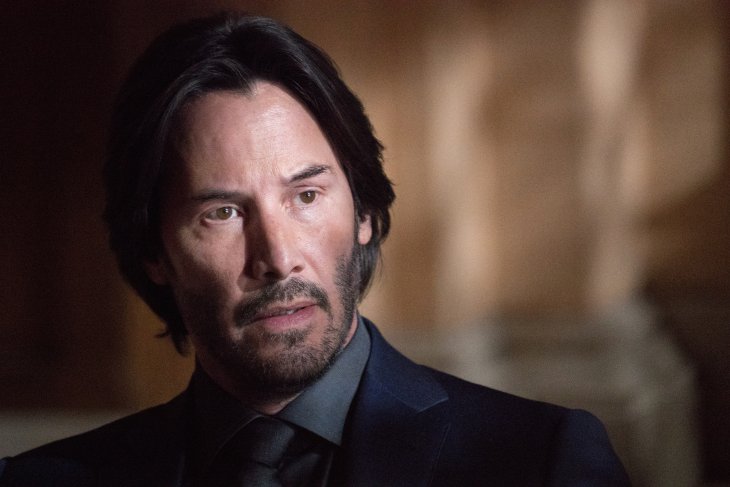
I recently had a chance to interview Kirk Honeycutt, former movie critic for The Hollywood Reporter. Honeycutt is very well-versed when it comes to all film related matters.
He is currently working on a book about the filmmaker John Hughes, which should be published early next year. What follows is the question-and-answer that I had with him.
1. What made you decide to become a film critic?
While some colleagues definitely intended careers in film criticism — in the days when that was a viable occupation in the old media — I never did. Studying Theater Arts at UCLA, I took required cinema courses and fell in love with movies so I “audited” many film courses and have continued my study of film ever since. While acting in a play in Hollywood a fellow actor suggested I try to get a job in film reviewing. After writing to the two major newspapers in L.A. then, the Times and Herald Examiner, I hooked up with the then Valley News, which under the ownership of the Chicago Tribune became the Daily News. Eventually management brought me aboard as its first ever film critic.
I developed a freelance career even while employed there, mostly writing major pieces on film and occasionally TV and stage for the New York Times’ Arts & Leisure section. I quit the Daily News around 1987 and went freelance plus worked on screenplays. I sold one to Roger Corman, who made it into a film called “Final Judgment,” did a page-one rewrite on a horror film called “Death Spa,” for which I did not receive credit although my rewrite turned it into a go project, and wrote another script with a friend for a producer who never made the film.
I freelanced quite a bit and did a Sunday news column for the LA Times before joining The Hollywood Reporter in 1992 as a film reporter, a job I held until 1999 when I became its chief film critic. The key thing about this background is that I believe I am really the only film critic who has done serious news reporting on the film industry.
Most critics know a few filmmakers from interviews or festivals and maybe an exec here and there. But I covered not only most of the major studios but exhibition, distribution, animation, the Academy, top conventions, Sundance, Cannes and even did marketing stories. I got to know the town’s agents, managers, executives, writers, directors, producers, heads of distribution both domestic and international, animators and studio heads.
Consequently, I got to understand on a first-hand basis how films get set-up, greenlit, made and marketed in Hollywood as well as in the independent arena. This makes me much more sympathetic toward films and filmmakers who stumble under the often impossible demands put on them by execs and studio folks. I hear fellow critics, thinking they’re smart, wonder sarcastically if anyone actually read the screenplay before it went into production. The problem is too many people read it and gave the poor writer(s) notes that drive him/them crazy. Then actors get involved and actually bring in their own rewrite guys if they have enough juice. So, yeah, I do understand why movies come out like crap.
This is a long-winded answer but the short one is that I did not plan such a career but cannot imagine a better one. It has taken me all over the world to report and write about films — Park City, Berlin, Cannes, Toronto, Telluride, Montreal, Mill Valley and Busan (Korea) as well as juries in Athens, Hawaii and Napa and Sonoma Valleys.
Today such a career is almost impossible since few media outlets hire critics. And those who do work in that position need a “day job” to support themselves as few outlets believe in paying critics.
One more thing unique to me: I am the only critic in LA to have organized film-reviewing departments in two major publications. The Daily News, as I noted, had no such department until I arrived. The Reporter’s was a disaster, having critics only in LA and NYC. I brought on an international staff from Asia to Italy and France to Australia, which it maintains today although reviews are not well promoted on its often messy website.
2. What do you look for in movies that you see?
The same thing you do — intelligent, entertaining stories. Yeah, I am teaching a course this semester in film script analysis and have written screenplays so I know a lot about structure. But I don’t sit there thinking, “Ah-hah, the mid-second act climax!” I just watch the story like everyone else does. Sure, I take notes about actors or bad lines or good ones and directorial touches and later might comment on these in my review. But again I let the film sweep over me and only afterwards subject it to analysis. Unless the movie is so poor that you can’t help noticing all the flaws and bad ideas. My definition of “intelligent” and “entertaining” is pretty broad and catholic but I think most readers develop a sense of a critic’s taste and know if he or she will like a film no matter if the review is mostly positive or negative.
3. Which individual would you say had the biggest impact in the way American films were made, seen, and/or distributed?
I’ve taught film history and cannot imagine any one person whose career would live up to that accolade. You again have to fall back on D.W. Griffith as the father of modern cinema nearly a century ago. His films “Birth of a Nation” and “Intolerance” were game changers. From that point on sound, color, wide screen, visual effects, 3D, shifts in exhibition and distribution, CGI and digital platforms have all expanded how people make and look at films but no single individual gets the credit.
4. What is the state of film now?
In total flux. And no one has a clear crystal ball about the future. Now that literally anyone can make a movie and get it shown on some platform or venue, it’s the complete democratization of film. Is this good, is this bad? Hell if I know. Last year overall was a good year for Hollywood and indies alike. (Increasingly, it’s hard to tell which is which for that matter.)
A few things are clear: The studios are in a rut with remakes, reboots and sequels. Too much money is at stake for the Nervous Nellys at the studios to make intelligent decisions. Rarely other than fall “Oscar season” do the major releasing companies take chances on risky films.
Also, clearly, filmmakers rely far too much on CGI in their storytelling. The audience is increasingly fragmented and turned off by the costly big screen experience, preferring to wait for VOD or other means to watch movies. Yet if filmmakers can make films such as “Her,” “American Hustle” and “Gravity,” there is plenty of hope for originality.
5. Where do you see the field of film headed?
See above. My only hope is that the movie experience in cinemas continues no matter how many people want to watch movies on their smartphones. With cinemas opening up all over Asia these days I don’t think that will be an issue. Plus in places such as India it’s still the major form of mass entertainment.
6. Which movies and/or directors do you see as having been influenced by writer/director John Hughes?
When someone is as unique as John Hughes was when making his best films, it’s hard to find anyone who can bear that standard. No one was able to “do” Preston Sturges and while the film world is awash in Hitchcockian films I find few if any can truly compete with the master although he did teach legions of directors a few tricks.
Hughes worked in two areas, teen films and family comedies. No one has taken his place in the former. There are post-modern teen films such as “Heathers,” “Mean Girls” and “Easy A” that are Hughesian in manner but not tone, meaning films that take teens seriously. Perhaps Alexander Payne’s “Election” might also be included.
Hughes’ family comedies made a lot of money but explored no new ground. “Home Alone,” of course, was his most successful film, indeed the biggest comedy hit of all time even today. But much of that was due to his lead actor. He wrote a wonderful part for a child star who delivered big time. The film itself is innovative but I can’t think of any subsequent films that are influenced by it.





















